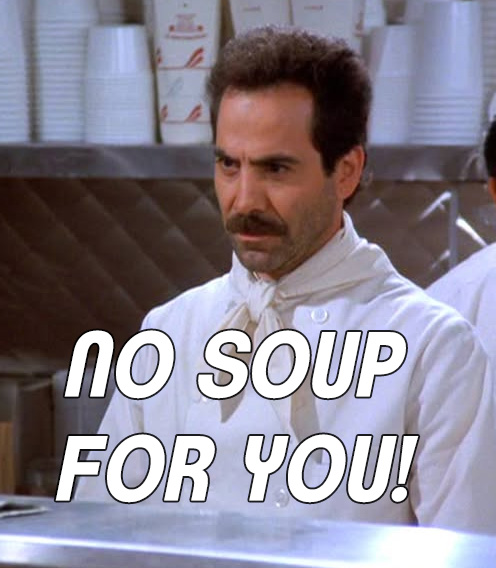Summary:
As part of Guthrie's Chapter 13 bankruptcy, he surrendered his interest in real property owned with his then wife (who did not file bankruptcy) to the mortgage holder. Shortly after this PHH obtained an interest in the property. After completing his bankruptcy and receiving his discharge. Despite the discharge and multiple letters from his attorney, PHH continued to contact Guthrie about payment on the mortgage and also reported to the credit bureaus that he was delinquent. Similarly to the Barnhill case from the MDNC Guthrie brought suit against PHH in federal district court (not bankruptcy court), originally asserting 10 state and federal causes of action, but after the district court’s grant of summary judgment to PHH Mortgage Corporation, only appealed on three state causes -negligent infliction of emotional distress, intentional infliction of emotional distress and violation of the North Carolina Debt Collection Act - and two federal—violations of the Fair Credit Reporting Act (“FCRA”) and the Telephone Consumer Protection Act (“TCPA”).
The first issue on appeal was whether the Bankruptcy Code preempts state law causes of action for a creditor’s improper collection efforts related to debt that has been discharged in bankruptcy. Secondly, whether there genuine disputes of material fact with respect to Guthrie’s federal and state claims?
The Fourth Circuit affirmed in part, vacated in part, and remanded. The court held that the Bankruptcy Code did not preempt Guthrie's state law claims arising from alleged improper collection attempts of a discharged debt. The Court of Appeals started with the presumption that federal law does not preempt state law unless there is either:
- Express Preemption: Where Congress explicitly states an intention to preempt certain state laws.
- Field preemption: Where federal law so thoroughly occupies a legislative field as to make reasonable the inference that Congress left no room for the States to supplement it.
- Direct Conflict Preemption: Where compliance with both federal and state regulations is an impossibility.
- Obstacle Preemption: Where a state law stands as an obstacle to the accomplishment and execution of the full purposes and objectives of Congress.
While the district court did not explicitly specify which theory of preemption applied, the Circuit found Express Preemption did not apply "the Bankruptcy Code provisions pertaining to chapter 13 bankruptcy and discharge injunctions do not include language preempting related state law. 11 U.S.C. §§ 524, 1301–1330" and that Field Preemption had not been asserted.
As to Direct Conflict Preemption applies, the Court of Appeals found that "the answer to that question is easy" as a "creditor can comply with both the discharge injunction and the state law on which Guthrie’s claims are based by not seeking to improperly collect debts discharged in bankruptcy." (Emphasis added.)
While a determination of Obstacle Preemption was "trickier" the Court of Appeals applied a two step process:
- Determine Congress’s significant objectives in passing the federal law.
- Determine whether the state law stands as an obstacle to the accomplishment of a significant federal regulatory objective.
While the Supreme Court has explained that “[t]he principal purpose of the Bankruptcy Code is to grant a ‘fresh start’ to the ‘honest but unfortunate debtor", it must also balance the "multiple, often competing interests" including providing a “prompt and effectual administration and settlement of the debtor’s estate" and centralizing disputes between the debtor and creditor.
Accordingly, Guthrie's state law claims "create no obstacle to providing him with a fresh start" and, if successful, actually promote such. Nor would, in balancing other interests, allowing these claims result in the inequitable distribution of his assets, would not increase the debts that are dischargeable and would not slow down or negatively affect the administration or settlement of his estate.
Granting some merit to the argument by PHH that this creates "piecemeal litigation" the Court of Appeals found the claims did not "detract from the ease of centrality with which the federal bankruptcy system operates" as all alleged violations occurred following the completion of the case and were not inconsistent with any bankruptcy court orders, especially as "the Code’s treatment of violations of the discharge injunction is scant at best", derived largely from 11 U.S.C. § 105(a). "[T]he mere fact that state law claims provide broader remedies than federal law means the state claims are preempted."
Lastly, following Butner v. United States, 440 U.S. 48, 54 n.9 (1979), the Uniform Bankruptcy Clause of the Constitution would not be presumed to preempt state claims.
The court also held that Plaintiff has established a genuine dispute of material fact with respect to his NCDCA and FCRA claims. However, Guthrie did fail to establish a genuine dispute of material fact with respect to his TCPA claim.
Commentary:
This case opens the door further in bringing additional or alternative causes of action besides merely violations of the discharge order, including UDTPA, NEID, IIED, FDCPA, FCRA- what bankruptcy judges often disparagingly call "alphabet soup" claims. Those causes of action often carry statutory damage provisions and may be more amenable to class actions.

Whether the same will hold for violations of the automatic stay or confirmation orders will require courts to provide a more detailed analysis of the various forms of preemption, not merely a knee jerk "No soup for you!!"

To read a copy of the transcript, please see:
As to the federal claims under the FCRA and TCPA, remember that the Bankruptcy Code does not preempt other federal laws, but instead can preclude or implicitly repeal the other, but only if the separate federal laws cannot be harmonized. See Randolph v. IMBS, Inc., 368 F.3d 726, 730 (7th Cir. 2004).
Deciding whether to bring these state and federal claims together with a discharge violation in the bankruptcy, only bringing the alternate claims in state or federal district court (or more complicated maneuvers involving remand, consolidation, or withdrawal of district court reference to the bankruptcy court) will be important strategic considerations in these cases.
That PHH Mortgage sought to assert that the Uniform Bankruptcy Clause in the Constitution preempts state law claims is ironic, given that nearly all claims in bankruptcy are based solely on state law. Apparently, PHH believes that its ability to collect on debts can rely on state laws, but those same laws should not restrict its actions. (Again, geese and ganders.)
It is also worth noting that this is not an isolated incident of improper and illegal behavior by PHH Mortgage, as it was found to have committed similar illegal acts in, among other cases, the line that culminated in PHH Mortg. Corp. v. Sensenich (In re Gravel). As that case showed that the remedies under Rule 3002.1 may not authorize punitive damages, proceeding under alternate state and federal laws seems likely the best way to deter the apparent blatant and repeated disregard for the law by PHH Mortgage and other creditors, as those do provide for greater monetary awards, which might lead to some degree of compliance.
Congratulations to Matt Buckmiller and Blake Boyette on this important victory!


Blog comments